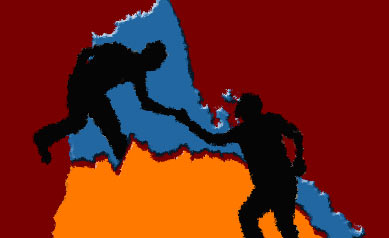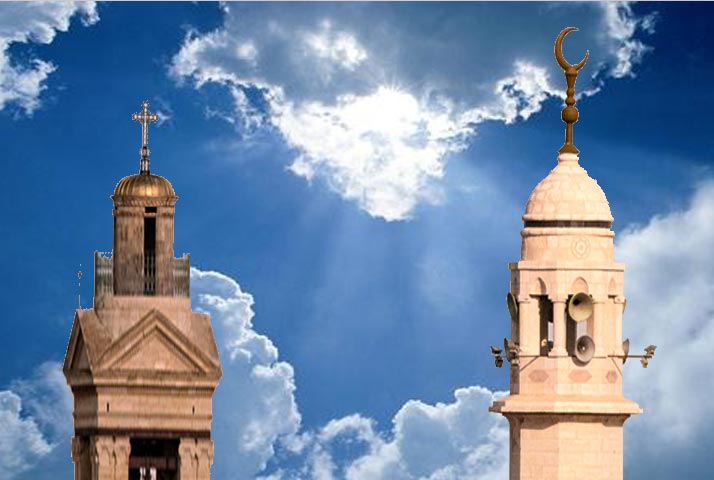The London Conference
It isn’t enough to talk about peace. One must believe in it. And it isn’t enough to believe in it. One must work at it. –Eleanor Roosevelt (1884-1962)
According to an announcement on asmarino.com, a peace conference has been organised by an ad-hoc group based in London and the group is led by Paulos Tesfagiorgis, who works for International Institute of Democracy and Electoral Assistance (International IDEA), and holds a Senior Advisor position for Constitution-Building Processes and covers the Africa and Middle East programme. The rest of the ad-hoc group are Dawit Mesfin, Co-ordinator, and Selam Kidane, Secretary; Dr Gaim Kibreab and Mr Suleiman Hussein are members of the steering committee. It is also reported that the Peace Conference is funded by the International IDEA, and will be held at the London Heathrow Hilton Hotel, on 18 -19 December 2009.
In my view, let alone an initiative to organise a peace conference to discuss peace in Eritrea and the Horn, any initiatives by individuals or organisations should be encouraged. In fact there have been similar conferences in the past such as, The Search for Peace: The conflict between Ethiopia and Eritrea, held in Oslo, Norway, 6-7 July 2006. Three years later, nothing has changed. The border has not yet been demarcated; the two governments are locked in a proxy war, and are continuing to blame each other for the border impasse. It seems the no-peace-no-war situation suits the two governments in order to stay in power in their respective countries.
The problem between Ethiopia and Eritrea lies with the leaders of the two countries; there is no problem with the people of the two brotherly nations. All that can be proved is that after the bloody border war between Eritrea and Ethiopia, 1998-2000, when so much pain was inflicted by each side in the last seven years or so, Eritreans have been fleeing to Ethiopia to seek asylum in order to avoid persecution and torture by their own government. The Ethiopians are welcoming them, and granting them asylum and refuge, and the Ethiopians would not have extended their hand to their Eritrean brothers without their government’s approval.
The London conference, amongst other things, is organised to discuss the crucial issue of peace in Eritrea and to develop a framework that can provide effective guidance to a planned peace movement in Eritrea and in the region. We all understand the importance of peace and the need to form a peace movement, but how can that be achieved without engaging the Eritrean government and the Eritrean citizens inside Eritrea?
We all know that the livelihoods of the border communities, especially those from the Eritrean side, have been badly affected and many of them have been internally displaced. They have no hope of going back to their villages and towns due to the impasse on the border demarcation. Their predicaments can be evaluated from a distance, but no one would be given access to evaluate their misery and hardship on the ground. So, for the time being it is just wishful thinking.
The issue of the distressing effects of the border impasse on the border communities, especially from the Eritrean side, have been raised by Eritrean activists, academics, international human rights organisations and concerned external actors. Unless the border issue is resolved or the despot regime in Eritrea is overthrown, there is no a quick solution to it.
.
Several months ago, the citizens from the two sides of the border, from Eritrea and Ethiopia, elected a committee each and were discussing peace and their co-existence in a no-peace-no-war situation; however, the elected committee from the Eritrean side were imprisoned by the Eritrean regime and the peace talk was halted. This example simply shows us that the two brotherly people do not have problems, but cannot talk about peace or other common social or economical issues under the current situation if they are unable to get support from their respective governments.
Thus, we Eritreans, the first thing we should do is to solidify our unity as a nation and as people. The Eritrean government would not have stayed in power even for a single day if we were united and in peace with each other. Therefore, our first mission should be to have peace among ourselves, before we try to extend it to our neighbours and regions.
In view of this, without wishing to sound dismissive, my own assessment of the London Conference is that it is a dream, out of place, and a waste of time and resources.
The Eritreans in diaspora who have been struggling to bring changes in Eritrea are very fragmented and have been unable to work together. What is badly needed at this crucial time of our history is to strengthen and support the Eritrean diaspora civic societies, opposition parties, media outlets and human rights activists, in order to intensify their struggle for a rule of law, justice, democracy and human rights in Eritrea rather than spending thousands of dollars, given by International IDEA, to a project which cannot produce any short or medium-term outcome, except to make the organisers feel better about themselves and to enable them to add the so-called successful conference to their CV as an achievement though it gives no benefit to the Eritrean people who are suffering under the dictatorship.
I do also have some concerns on the composition of the ad-hoc group, as such a kind of initiative and task requires a good knowledge of the people of the Horn in general and the people of Eritrea and Ethiopia in particular. It also demands wisdom, commitment and understanding of the complex situation in the region. It has been reported that some of the ad-hoc group members were against even going to Ethiopia or talking with Ethiopian authorities unless the border is demarcated. What has changed their mind to talk about peace between Ethiopia and Eritrea while the border demarcation is still outstanding? What previous experiences do the ad-hoc group have in terms of peace movements, reconciliation and forgiveness? Have they made any valid survey or research before embarking into organising such a conference with the aim of drafting a peace charter?
I have been told that members of the London ad–hoc group were also part of the reference group who helped organise the Brussels conference on 9th and 10th November 2009. The conference was to create a common understanding between the US and the EU policy makers in regard to the current political situation in Eritrea and the Horn. We Eritreans certainly understand that such a kind of conference will depress the Eritrean regime while giving some hope to our people. However, it does not mean that such events were successfully accomplished with perfection; there were mistakes which needed correcting.
For instance, if we take the Brussels conference, it has been criticized for its lack of inclusivity and sensitivity by many Eritrean civic organizations, opposition political parties, as well as concerned citizens. The main purpose of having a constructive criticism is to help us learn from our previous mistakes, and avoid similar mistakes in future.
There is also another issue which I would like to raise. I went through the participants list to the London peace conference which was forwarded to me by a friend, and have noticed that Amanuel Eyasu, Journalist, activist and the owner of Assenna.com and Radio Assenna was not on the list. We all know the tremendous contribution of Assenna.com and Radio Assenna in providing timely information to our people in Eritrea and in diaspora. The group not only failed to invite a prominent journalist but also prominent Human Rights activists like Elsa Chyrum, who is the engine, bridge and tool for any peace. She has done what this kind of conference aspires to, and has been doing it continuously. Both Amanuel and Elsa live in London where the conference is held.
Can you imagine that these two prominent activists who have been playing a significant role in our current struggle are not invited to this conference? It’s surprising. I contacted a few of my friends and I discussed this issue. What is more disturbing is that Elsa Chyrum wrote to the ad-hoc group and expressed her interest in attending, but as of today, Elsa has not received her formal invitation like the other invitees or an official written reply to her request. Informed about the problem, Saleh Gadi of Awate.com tried to mediate and advised Dawit Mesfin and Selam Kidane, members of the ad-hoc group, in writing and by talking to them to resolve the impasse, but both of them failed to listen to his advice and the mediation failed.
What is outrageous is that if they do not believe in mediation, do not have respect for their fellow activists, failed to reply to Elsa’s written request, and acted based on personal dislike or grudges, how can they speak of peace and organise a peace conference to deal with a complex and enormous problem that we have in our country and the region? To me it is also an abuse of position and assertion of power to some degree.
Ultimately, this kind of conference should not be about the people or personalities attending –it should be about all the real victims whose voices cannot be heard and whose names mostly remain anonymous. It should be about actions, not the actors. Self-importance, petty jealousies and the like, are part of the problem, not the solution- one look at the Eritrean government is enough to prove this point. Eritrea and Ethiopia are in a ‘no-war-no-peace’ situation because of the megalomaniac personalities that impose their twisted psyches onto the nations.



Awate Forum